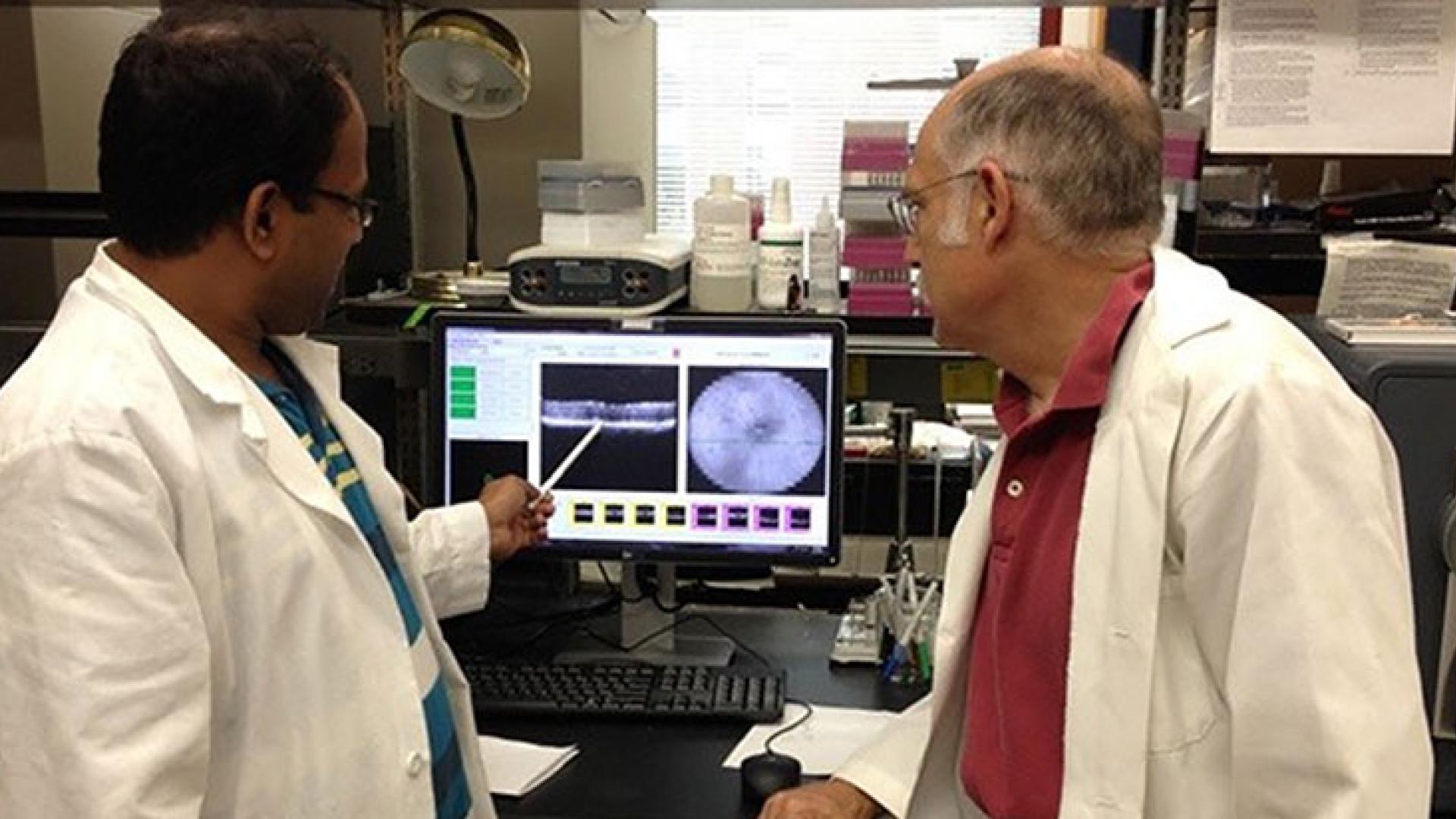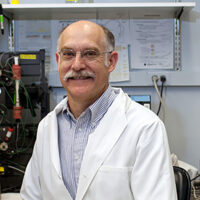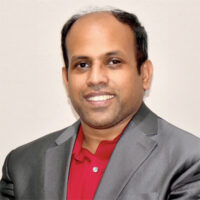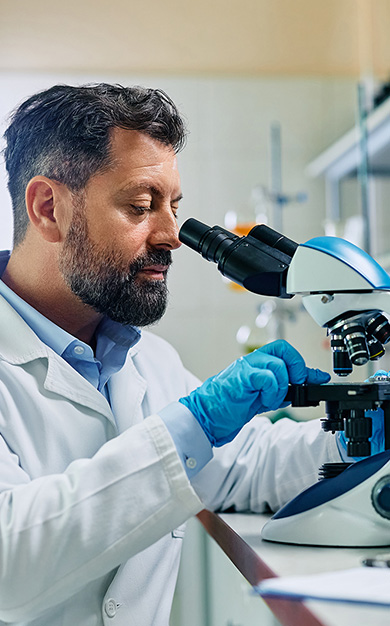New Uses for Previously Tested Drugs?
Written By: BrightFocus Editorial Staff
Written By: BrightFocus Editorial Staff

A new hope for treatment of age-related macular degeneration (AMD) is coming from the potential for repurposed drugs to speed up the research and clinical trial process. Repurposed means these drugs already have been investigated or approved for another condition as part of the Food and Drug Administration (FDA) review process, a fact that may accelerate its potential use for AMD.
Two scientists at the University of Florida, supported by a grant from BrightFocus’ Macular Degeneration Research program, have uncovered some tantalizing clues that a drug previously investigated to protect against nerve damage during cancer treatment could offer some protection for the nerve cells of the eye in late-stage dry AMD. As an added bonus, the treatment may be orally available, meaning it would not require eye injections.
Guest speakers on a recent BrightFocus Chat teleforum, Alfred Lewin, PhD, and Manas Biswal, PhD, have been studying the advanced form of dry AMD known as geographic atrophy. This condition leads to death of the critical photoreceptor cells in the center of the retina, in the macula. It also kills cells behind the photoreceptors called the retinal pigment epithelium (RPE). Unfortunately, the condition is not reversible, and there are currently no approved treatments for geographic atrophy.
Lewin and Biswal and their research team are looking into an experimental drug called xaliproden (pronounced “zah-li-proden”), which has several qualities that make it worth inspection as a possible geographic atrophy treatment:
Given these attributes of the drug, Biswal said, “We have a hunch for why it might work in targeting a particular signaling pathway.” And if it protects the eye’s RPE tissue and retina at earlier stages of AMD, it may achieve the goal of being neuroprotective, as well as one of the first treatment to protect against further cell damage in GA.
Neuroprotection may occur because of xaliproden’s antioxidant properties. Antioxidants protect against cell damage caused by stressors outside the body, like sun damage, and inside the body, such as drusen, a type of fatty protein deposit associated with AMD, as well as other cellular debris that tends to be less efficiently removed from the eye as it ages.
Because of the age-related factors contributing to AMD, any intervention to prevent AMD “has to start early,” according to Dr. Lewin. And once a person is at the advanced stage of dry AMD that is geographic atrophy, not nearly as much can be done. Speaking on the Chat, the scientists emphasized the importance of early screening for AMD through dilated eye exams, noting that the most important message they can make right now is to, “get a regular eye exam.”
Nonetheless, even for geographic atrophy, these scientists are hopeful that they are on the cusp of something new and potentially rewarding as a treatment. “We are not there yet, but we are getting there,” Lewin said, referring to the huge amount of work and financial investment that are required to bring a drug to market.
In the meantime, the scientists reminded the audience, there are steps we can take to help prevent some of the damage to the eye and other tissues, by controlling or reducing oxidative stress:
For more information on Lewin and Biswal’s work, see:
BrightFocus Foundation is a premier global nonprofit funder of research to defeat Alzheimer’s, macular degeneration, and glaucoma. Since its inception more than 50 years ago, BrightFocus and its flagship research programs—Alzheimer’s Disease Research, Macular Degeneration Research, and National Glaucoma Research—has awarded more than $300 million in research grants to scientists around the world, catalyzing thousands of scientific breakthroughs, life-enhancing treatments, and diagnostic tools. We also share the latest research findings, expert information, and resources to empower the millions impacted by these devastating diseases. Learn more at brightfocus.org.
Disclaimer: The information provided here is a public service of BrightFocus Foundation and is not intended to constitute medical advice. Please consult your physician for personalized medical, dietary, and/or exercise advice. Any medications or supplements should only be taken under medical supervision. BrightFocus Foundation does not endorse any medical products or therapies.

University of Florida

University of South Florida
Help Fight Macular Degeneration and Save Sight
Your donation helps fund critical research to bring us closer to a cure for this sight-stealing disease and provide vital information to the public.
Donate Today